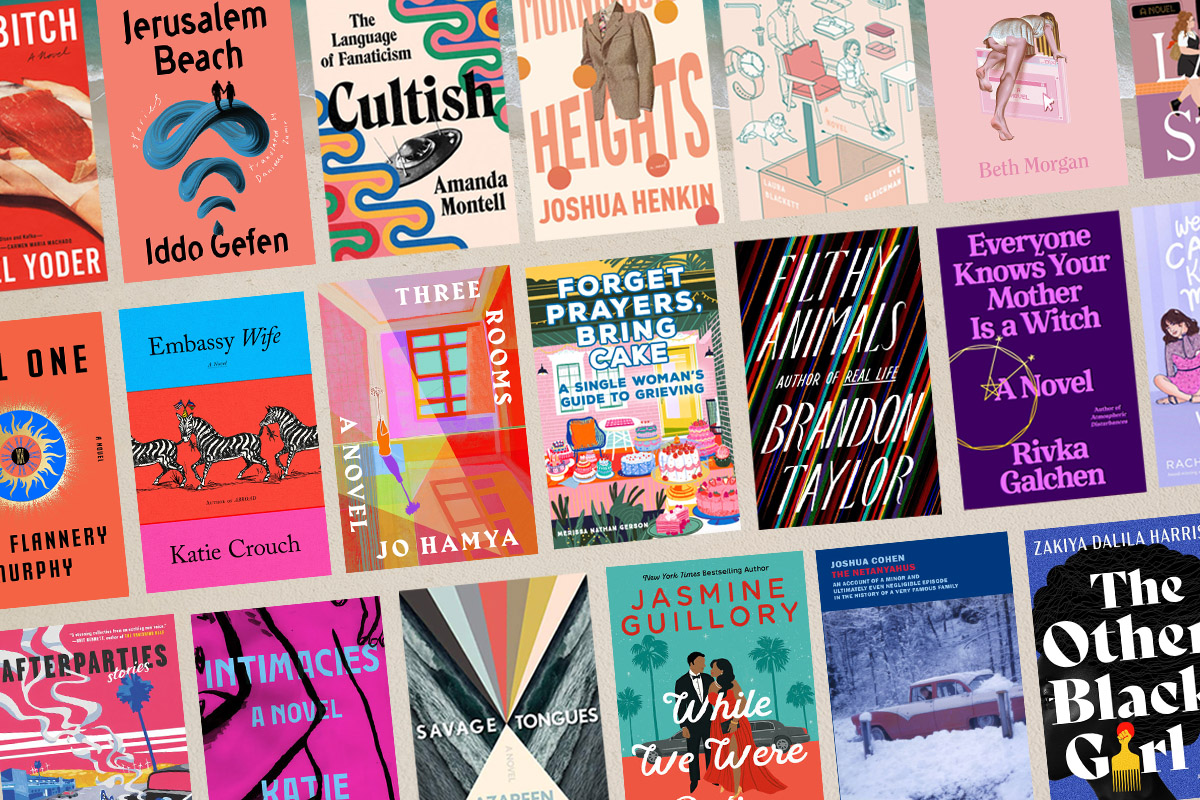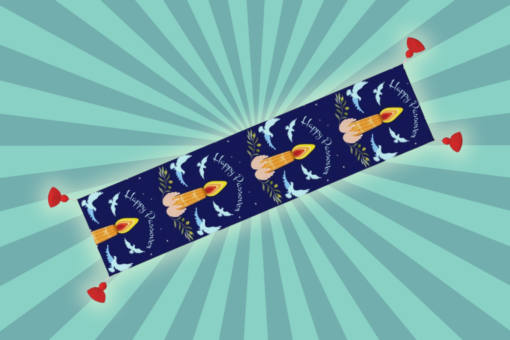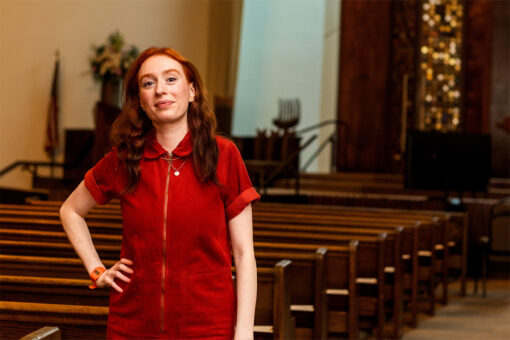Summer reading, here we go again!! This is the first season where many people will finally be vaccinated, and “shot girl summer” is bound to be a lot of fun (and extremely overwhelming). But sometimes (all the times), you just need to recharge and spend time alone with a great book.
This summer reading list, like our spring recommendations, is divided into books by Jewish authors as well as other new releases we’re very excited about. As always, this list is all shoppable on Bookshop, a platform supporting local bookstores. I’d also like to encourage you to support a local bookstore near you. And let me know what you’re reading — I’m @emburack on Twitter and Instagram.
Without further ado, here’s a summer reading list for every type of reader. And yes, I read all 30 books on this list, just for you:
Books by Jewish Authors!
1. Everyone Knows Your Mother Is a Witch by Rivka Galchen (June)
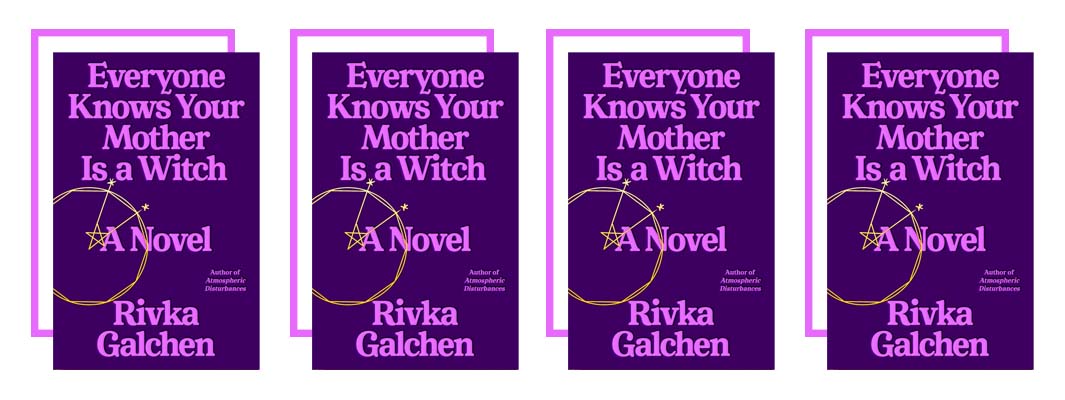
This historical fiction novel is the story of Katharina Kepler, a woman accused of witchcraft in 1615 Germany. Katharina really existed — she was the mother of famed astronomer Johannes Kepler — and documents from her witch trial are adapted and used throughout the novel. She dictates her story to her neighbor, Simon, who occasionally inserts his own thoughts. Interspersed with her narration are interrogations of various neighbors who quickly turn on her. Rivka Galchen makes Katharina extremely likeable and real, and the world of suspicion of the devil in early 1600s Germany very much comes to life with her prose. “Everyone Knows Your Mother Is a Witch” made me think a lot about superstitions and smart women and being at the mercy of the law. Overall, the Jewish author has written the best kind of historical novel: one that serves as a lens on our modern times. Plus, how can you resist a book with this title?
Read if you’re into: historical fiction. Truly, this is the best historical fiction novel I’ve read in a looooOOooOong time. Get it here.
2. The Netanyahus: An Account of a Minor and Ultimately Even Negligible Episode in the History of a Very Famous Family by Joshua Cohen (June)
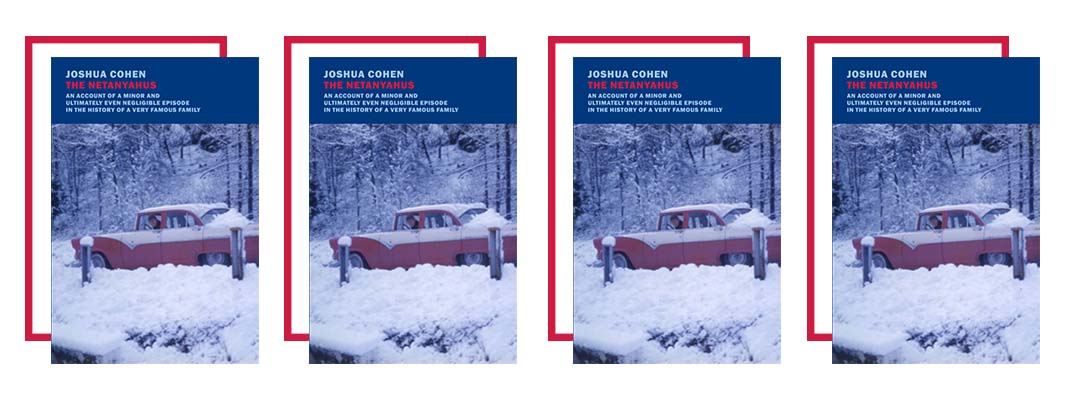
Joshua Cohen’s latest novel is an absolute treat. It imagines one disastrous night in the winter of 1959/1960 when Benzion Netanyahu, the historian and father of Israeli Prime Minister Benjamin Netanyahu, interviews for a teaching position at a fictional college in upstate New York. Selected to be Benzion’s guide to campus, and put on the hiring committee, is the one Jewish man in the history department: Ruben Blum, our narrator. What results is a moving, funny story of Jewish identity, assimilation, history and more. It’s a mix of fiction and nonfiction — the elder Netanyahu was, indeed, a professor of history, and spent time in America. In an author’s note at the end (minor spoiler alert!), Cohen writes the book was inspired by Professor Harold Bloom’s story of Netanyahu. A smart and incisive novel — especially if you love thinking about Jewish identity and history.
Read if you’re into: well, thinking about Jewish identity and history. Get it here.
3. Cultish: The Language of Fanaticism by Amanda Montell (June)
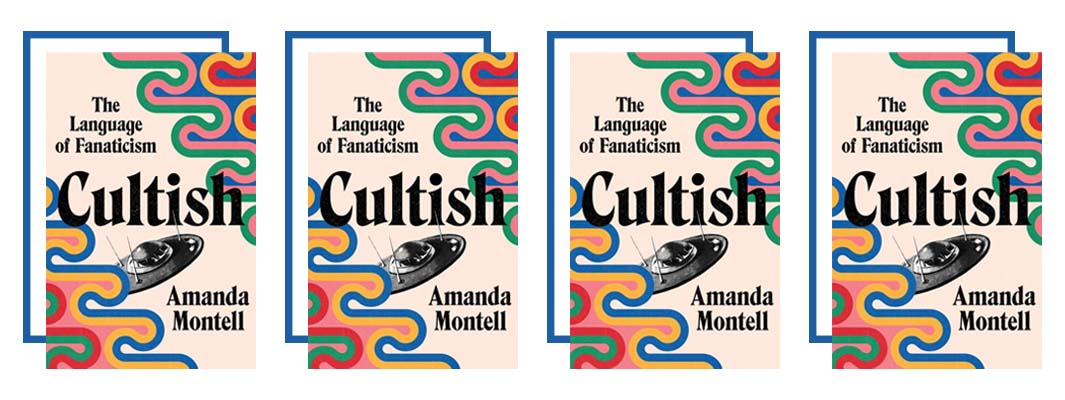
I simply need everyone I know to read this book. Amanda Montell’s second book is a smart and fascinating read on the language of cults. It’s “cultish” because she includes what you think of when you think of cults, like Jonestown, but also things that are, well, cult-ish, like Soul Cycle. Montell’s father, Craig, grew up in a cult he was forced to join. His stories of Synanon, and how he left, are undeniably what led Amanda down a path of interest in cults. My favorite chapters are not on your “classic” cults, but on MLMs and the language of cult-like corporations — and how modern companies and pyramid schemes aim to cultivate a cult following. In tandem with her book, she’s also launching a podcast, “Sounds Like a Cult,” to talk all about modern day cults. “Cultish” is deeply researched, fascinating and worth your time.
Read if you’re into: CULTS. Get it here.
4. The Very Nice Box by Laura Blackett and Eve Gleichman (July)
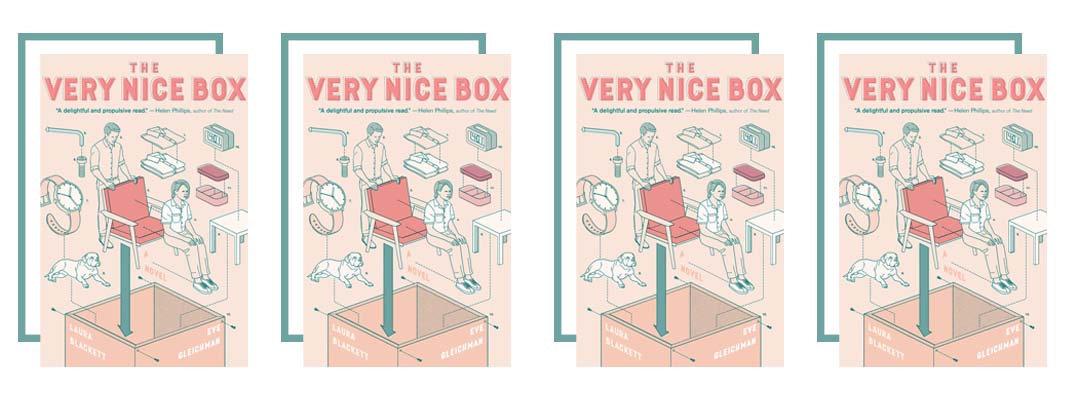
The debut novel from Laura Blackett and Jewish writer Eve Gleichman is at once a compulsively readable satire of white men in tech and a loving look at the power of friendship. Our protagonist, Ava, designs storage boxes for STÄDA (a Brooklyn-based Swedish furniture company that is not not IKEA). She’s obsessive and work-focused, still grieving the loss of her girlfriend and parents from a tragic car accident. But when her new boss, Mat, tries to get to know her, she starts to let him in. But is Mat who he says he is?! I high-key was anxious as I read this. If you, too, are an anxious reader: Don’t worry, Gleichman and Blackett’s ending absolutely delivers. I love how it’s described: “a send-up of male entitlement and a big-hearted account of grief, friendship, and trust.” Sign me tf up.
Read if you’re into: critiques of tech, critiques of men, and tensely plotted stories. Get it here.
5. Morningside Heights by Joshua Henkin (June)
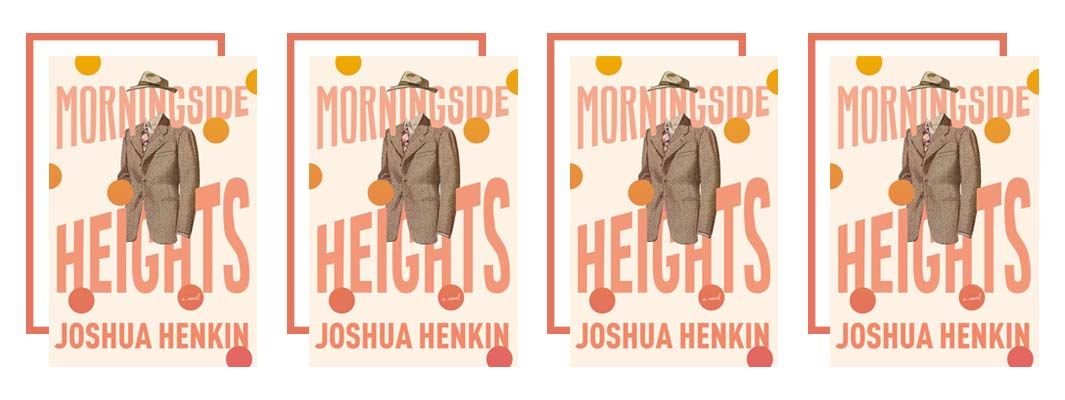
Jewish author Joshua Henkin tells the story of the marriage between Pru and Spence, and what happens when Spence develops early-onset Alzheimer’s. What happens when the person you married becomes a different person? It is a beautifully written novel, and the story of their marriage and Spence’s illness is told with deep care. I loved this blurb from Sigrid Nunez: “Reading Morningside Heights is an emotional experience. How much can befall a marriage, and what extraordinary demands must sometimes be met for loved ones to endure. But it is a delightful read as well, because the people here are such thoroughly engaging company. So much that happens in this book is unexpected that it reads at the pace of a suspense novel, but its greatest achievement is to make us feel that we are in the presence of real people, living out their joys and sorrows and making their way in the real world.” I’ll read anything Sigrid tells me to, tbh. And I’m glad I did: “Morningside Heights” is incredible.
Read if you’re into: stories of marriage, stories that will make you feeeeeeel things. Get it here.
6. We Can’t Keep Meeting Like This by Rachel Lynn Solomon (June)
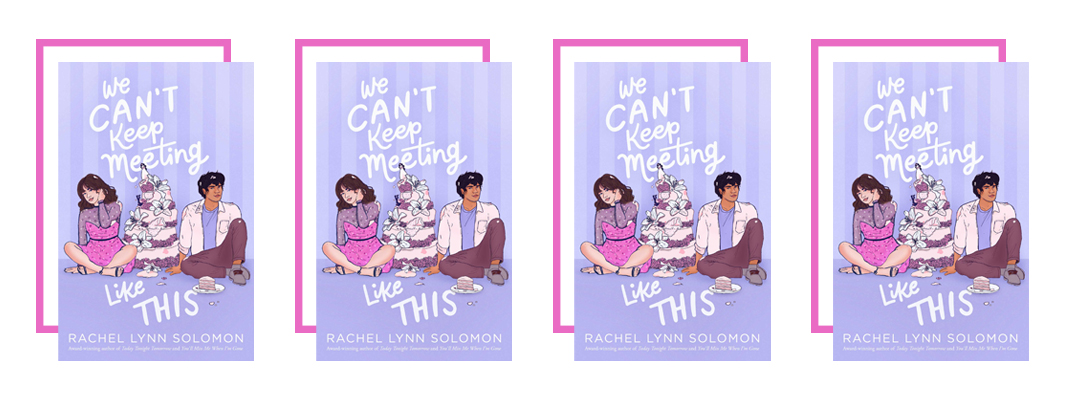
Jewish YA queen Rachel Lynn Solomon has appeared on many of our book lists before, and there was no question when I read “We Can’t Keep Meeting Like This” that it’d appear on our summer reading faves. The story is between a wedding harpist, Quinn Berkowitz, and a cater-waiter, Tarek Mansour. Quinn and Tarek’s families have been in the wedding business together for years, and last summer, Quinn confessed her crush on Tarek — and then he left for college and didn’t respond. It’s a new wedding season, they’re forced to work together, and Quinn can’t deny her feelings. As Quinn struggles to figure out what she really wants to do with her life, the thought of joining her family’s wedding business fills her with a sense of dread. “We Can’t Keep Meeting Like This” is effortlessly Jewish; there are details about mezuzahs and BBYO and messy, complicated Jewish families. And, Quinn and Tarek’s love story is really a freaking DELIGHT.
Read if you’re into: romance! YA romance! Jewish YA romance!! Get it here.
7. Jerusalem Beach by Iddo Gefen (translated by Daniella Zamir) (August)
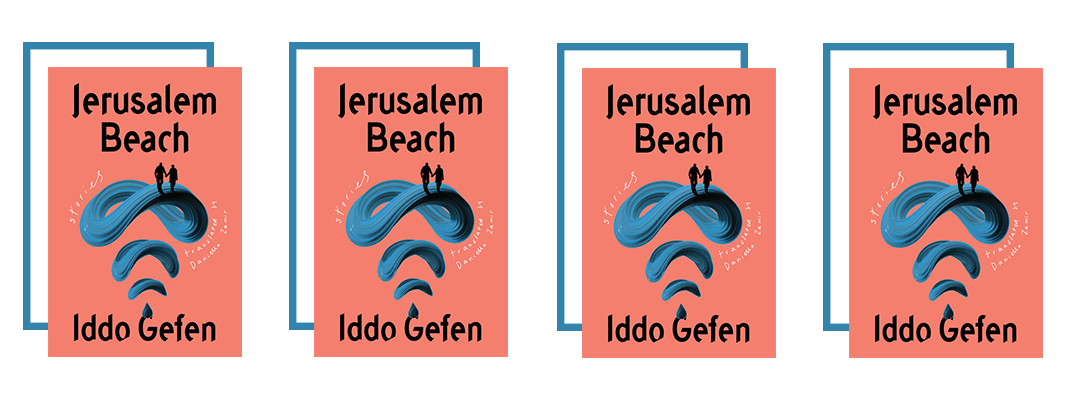
Iddo Gefen’s “Jerusalem Beach” shares 13 remarkable stories of modern life in Israel. Here’s an endorsement from the king of Israeli short stories, Etgar Keret: “The stories in Iddo Gefen’s Jerusalem Beach are a series of original, and many times truly inspiring, attempts to seek and find humanity and tenderness at the least predictable places.” It touches on a few common themes — of failure and success, of families, of daily life — and each story carries powerful emotion. For what it’s worth, the author’s Jewish mom still has some critiques (of course): Geffen tweeted a link about a preorder with his headshot, writing, “My Jewish mom: ‘I am very excited that your book was translated to English, but it’s not an excuse not to shave before being photographed.'” Some things are just universal.
Read if you’re into: stories about Israel, short stories. Get it here.
8. Forget Prayers, Bring Cake: A Single Woman’s Guide to Grieving by Merissa Nathan Gerson (August)
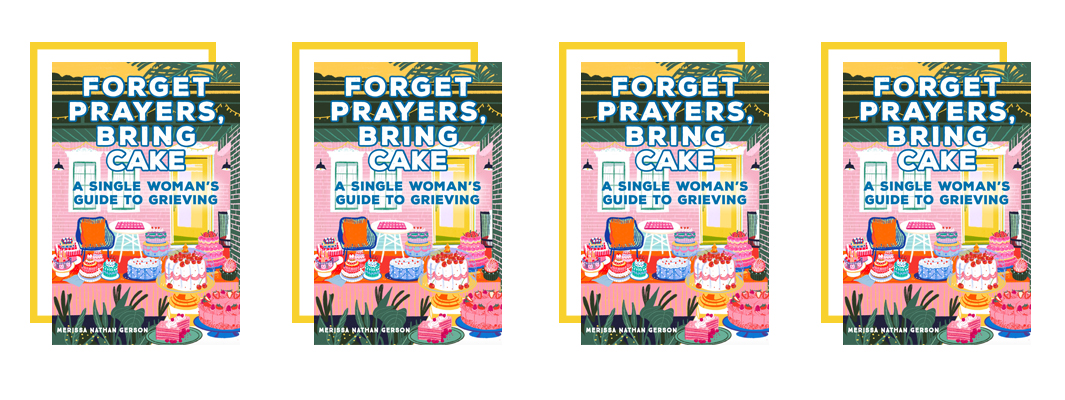
“The beauty of the book you are about to read is not simply that it teaches you how to face grief alone, but also that it guides you into the power of aloneness,” Autumn Brown writes in the foreword to Merissa Nathan Gerson’s book on grieving. There’s someone in your life — maybe it’s you — who absolutely needs this book.
“It took me four decades to learn how to grieve. It took me four decades to build practices into my life that allowed me to honor my grief, not just through ecstatic crying, but through caring for my body, for my home, and tending to my feelings.
Grief is a practice.
This book is a map.
This book posits the idea that grief is not to be recovered from, but rather prepared for; it is not predictable in linear stages, but rather a wild storm to ride out, to learn to navigate individually, before the next and the next and the next grief arrives.”
Dedicated to her father, Allan Gerson, Merissa writes movingly of grief, loss and mourning.
Read if you’re into: I am not going to say if you’re “into grief,” but read if you’re into taking care of yourself. Get it here.
9. One Two Three by Laurie Frankel (June)
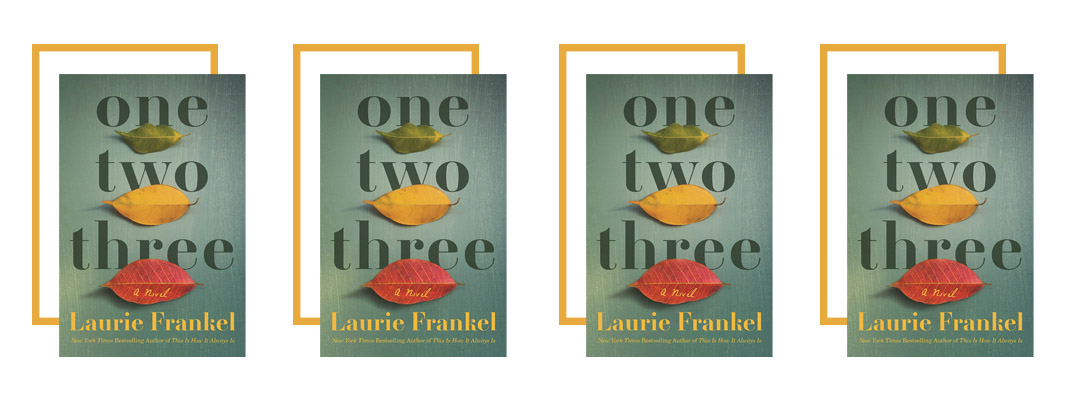
In the tiny town of Bourne, there’s the 16-year-old Mitchell triplets. “One is typical, and her name has one syllable: Mab. Two is on the spectrum, and her name has two syllables: Monday. Three cannot eat, speak, or walk, has the full use of only one arm and hand, and is a genius: Mirabel.” Seventeen years ago, Bourne’s water supply was destroyed by a chemical company, and many in the town died or were left with a permanent disability. The triplets’ mother, Nora, is a therapist trying to mount a class action suit against the chemical company that destroyed the town — and now, the factory is about to reopen. You can listen to Frankel read an excerpt from her novel here. It’s a story, ultimately, of resilience.
Read if you’re into: small town dramas, sisterhood, fights against environmental destruction. Get it here.
10. Life on the Line: Young Doctors Come of Age in a Pandemic by Emma Goldberg (June)
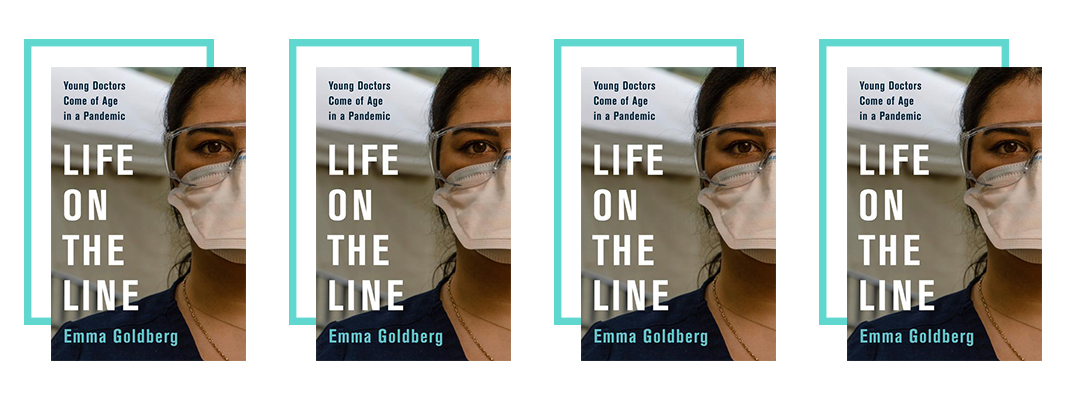
I wasn’t sure if I was ready to read about the pandemic, but boy am I glad I started with Emma Goldberg’s “Life on the Line.” Her book is the eye-opening story of six young doctors who were on the frontlines of the COVID-19 pandemic in New York City, all of whom graduated early from med school to go work. Goldberg, a New York Times journalist, expertly tells the story of the six new doctors — Sam, Gabriela, Iris, Elana, Jay and Ben — after having spent extensive time with them, their families and loved ones. What results is an emotional portrait of what working as a new doctor during the pandemic felt like, and it’s hard to put down. Two of the doctors are Jewish, and their stories were particularly powerful as a Jewish reader. Sam, a gay Jewish man, is shaped by the legacy of the AIDS pandemic — he met his partner, Jeremy, marching in a NYC AIDS walk for their synagogue, Beit Simchat Torah, a queer congregation. And Elana is moved by the Jewish value of pikuach nefesh (saving a life) — her first Friday working in a COVID ward, she realizes she would not make it home before sundown. “As the sky outside the hospital darkened, Elana had to keep repeating to herself: Saving a life trumps the Sabbath,” Goldberg writes. Each of the stories of the six doctors she follows are heartbreaking and powerful and inspiring. Goldberg also expertly works in the history of the American medical system and the homogeneity of America’s doctors and what that means for patients. Overall, even if you’re not ready to read about the pandemic: Read this.
Read if you’re into: healthcare heroes. Also, narrative nonfiction, thinking about the pandemic, and American healthcare systems. Get it here.
11. Mona at Sea by Elizabeth Gonzalez James (June)
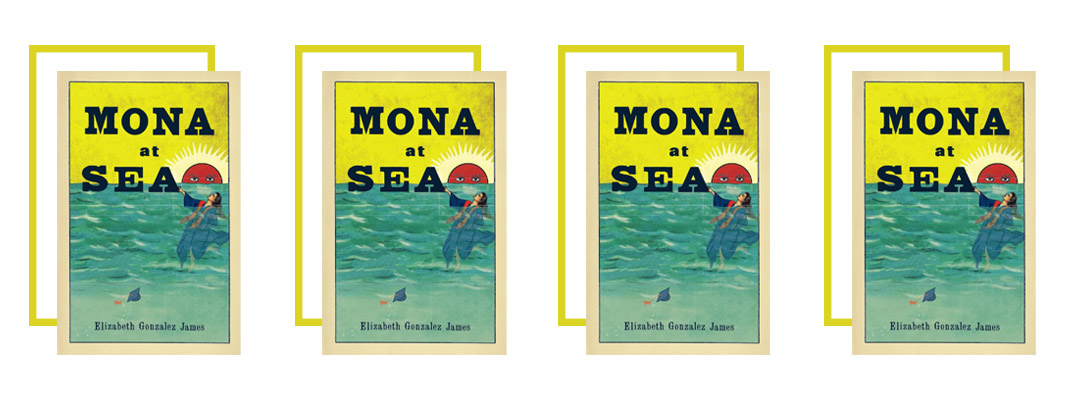
I opened the first chapter of “Mona at Sea” to see it titled “Sad Millennial” and knew that this was a book for me — and fellow sad Jewish millennials/zillennials. “I’m unemployed, I’ve never had a boyfriend, I live with my parents in the most boring town on the planet, and I hate myself.” Elizabeth Gonzalez James’ debut novel follows the titular Mona, a Latina millennial who is supposed to work at an investment bank upon graduation. But, when she graduates at the height of the 2008 economic crisis, the bank files for bankruptcy. Mona has to deal with unemployment as she moves back in with her parents and navigates the new “adult” world she feels fully unprepared for. Mona is described as “the sort who says exactly the right thing at absolutely the wrong moments, seeing the world through a cynic’s eyes.”
And a quick mazels to Elizabeth, the newest Jewish author on this list — her publicist tells me she just officially became a Jew a few weeks ago!
Read if you’re into: sad millennials. Get it here.
Other Books We Are Super Excited About:
12. Nightbitch by Rachel Yoder (July)
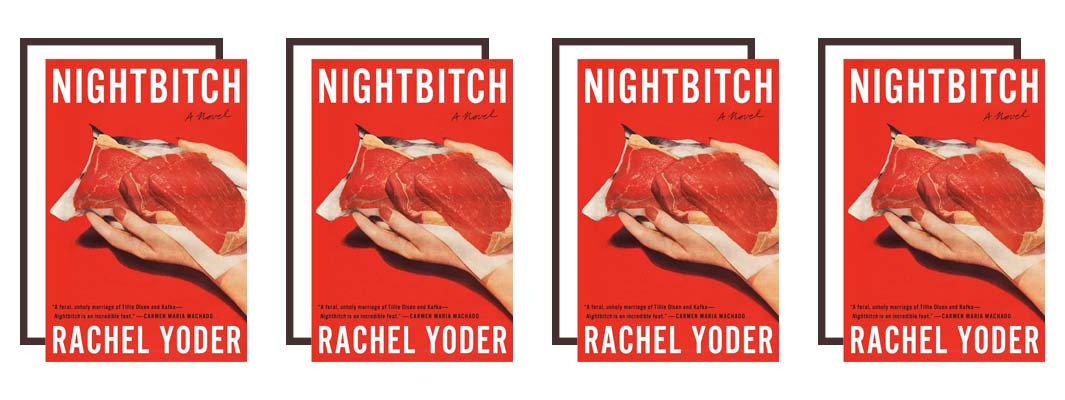
In this gripping debut, an ambitious artist becomes a stay-at-home mom after the birth of her son, becoming the primary caretaker as her husband travels all week for work. Soon, the woman (who goes unnamed) believes she is turning into a dog — thinking she feels hair on the back of her neck, a tail growing, a sudden urge for raw meat. She goes to the local library where she finds “A Field Guide to Magical Women: A Mythical Ethnography,” a book that tells tales of magical women around the world. She begins to figure out her new carnal urges and what they have to do with motherhood. A fascinating, surreal look at early motherhood. Think Franz Kafka’s “The Metamorphosis,” but with suburban moms.
Read if you’re into: motherhood, art, and Kafka. Get it here.
13. While We Were Dating by Jasmine Guillory (July)
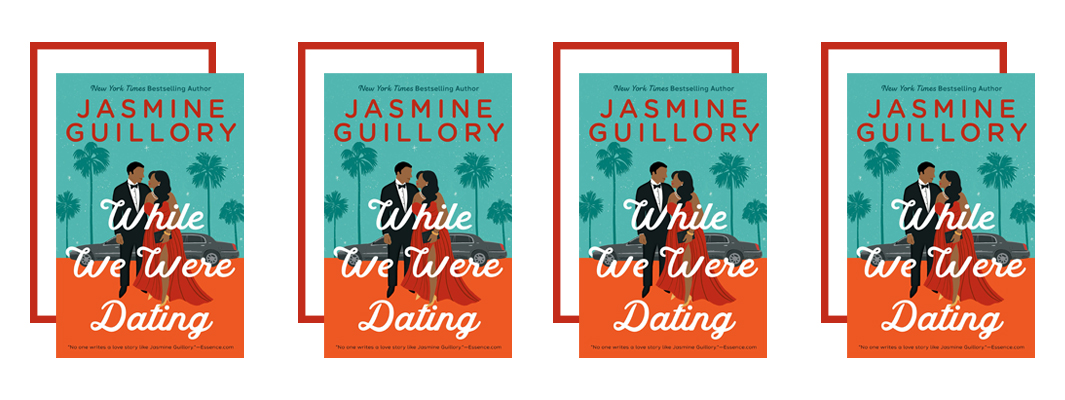
I cannot resist a Jasmine Guillory romance — filled with characters that feel so real it’s as if their lives will continue beyond the pages of the book, and A+ descriptions of sex and food — and “While We Were Dating” did not disappoint. If you’ve read other Guillory romances (may I recommend starting with “The Wedding Date“?), you know they are all in an interconnected universe; however, sad for us, this is the last book in that world. The plot: Ben, a Black advertising exec, lands a major campaign starring movie star Anna Gardiner. After Ben and Anna bond when he helps her navigate a family emergency, they start sleeping together — and “dating” for paparazzi to help Anna’s name stay in the press so she can land a role she covets. But when they start to develop real feelings, the idea that this relationship is fake takes a toll. But, it is a romance with a happily ever after … so you will leave satisfied.
Read if you’re into: LOVE STORIES. Also that trope where, oh no, there’s only one bed! What are we gonna do! Also a fake dating trope. Also just, really really good romance. Get it here.
14. Filthy Animals by Brandon Taylor (June)

Brandon Taylor’s debut, “Real Life,” took the world by storm — a Black queer campus novel, it was met with widespread critical acclaim and shortlisted for the 2020 Booker Prize. His follow up, “Filthy Animals,” returns to the same setting — a Midwestern college town (Madison, Wisconsin) — yet dives into a variety of characters and perspectives. I cannot resist a good linked short story collection, and this one does not disappoint; every story in “Filthy Animals” takes place over the same 24 hour period, and many characters show up in more than one chapter. (If you can’t get enough of Taylor, may I suggest his newsletter, “sweater weather”? His essay on book covers and representation is one of the best things I’ve read this year.) “Filthy Animals” is a powerful look at what it means to strive to live a creative life, the cruelties of families and friends, and the painful realities of longing for something.
Read if you’re into: linked short stories!! Really good writing!! Get it here.
15. The Perfume Thief by Timothy Schaffert (August)
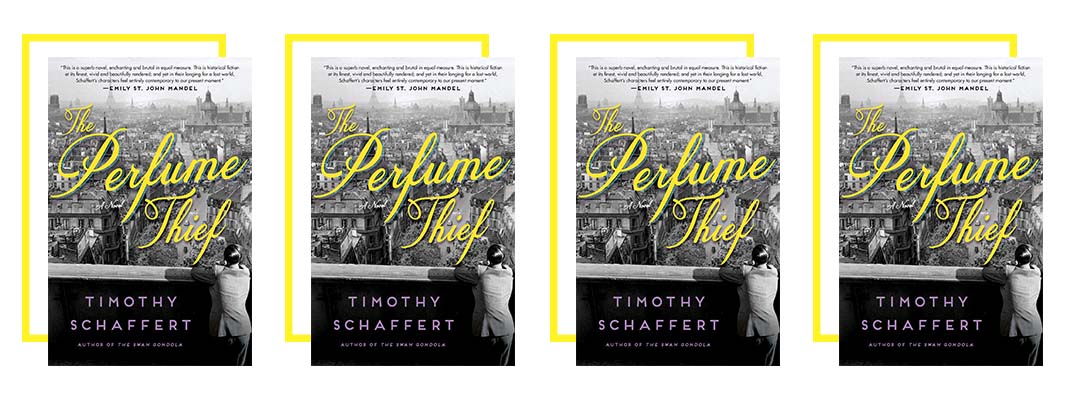
“The Perfume Thief” tells the story of Clementine, aka Clem, a 72-year-old reformed con artist. She has settled in Paris and is opening a perfume shop, but it’s 1941, so her favorite cabaret spot is filled with Nazis. When the cabaret star Zoe St. Angel asks Clem to help steal the recipe book of a now-missing Parisian perfumer, she can’t say no. (Zoe is secretly hiding her Jewish identity.) There’s a long-lost romance! Espionage! Fashion! Crime! History! The resistance! A 72-year-old reformed con artist who just has to do one last crime!!! If you’re reading this and thinking to yourself, “Wow this is up my alley,” I can promise you, it’s all you wanted and more.
Read if you’re into: historical fiction, World War II/Holocaust stories. Get it here.
16. Savage Tongues by Azareen Van Der Vliet Oloomi (August)
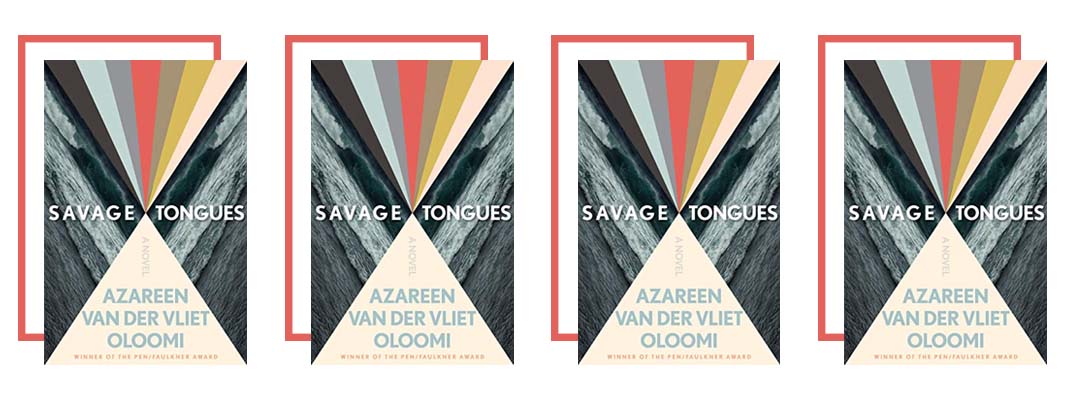
“Savage Tongues” centers on Arezu, an Iranian American, who is returning to an apartment in Spain where she lived for one summer. She’s coming back two decades later on a “recovery journey,” to address the abusive relationship she was in — a 17-year-old taken advantage of by a 40-year-old man named Omar. Accompanying Arezu is her friend Ellie, an Israeli American scholar who works in solidarity with Palestinian activists. Arezu and Ellie both have innumerable traumas they carry — and they spend the summer trying to unpack questions of agency, displacement, sexuality and more. As Arezu narrates, “Ellie and I were both born into such deranged whirlpools of geopolitical conflict, with so many contradictory voices swirling through our minds, that locating our own could be a laborious, exhausting task.”
Read if you’re into: healing from abuse and trauma. Thinking about Israel-Palestine. The power of friendship. Get it here.
17. Three Rooms by Jo Hamya (August)
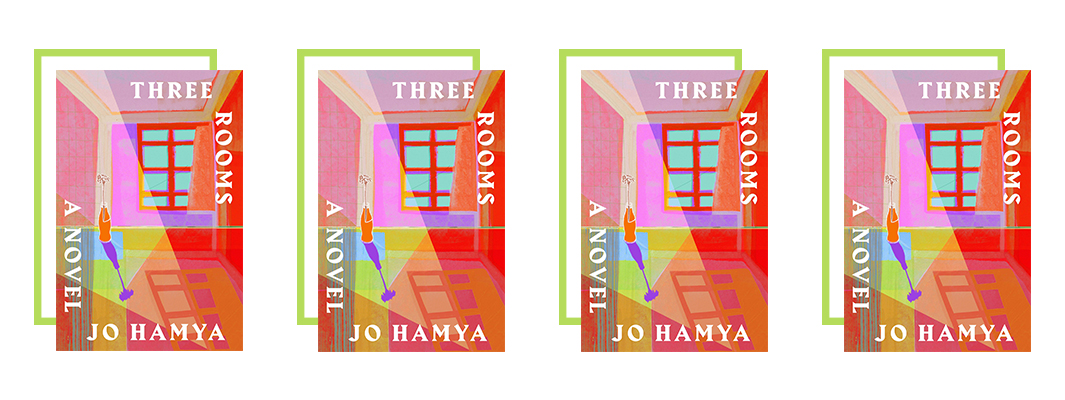
Virginia Woolf famously wrote, “A woman must have money and a room of her own.” But it’s the 21st century and what a woman needs now is her own apartment — something entirely unattainable for our protagonist, a young woman who lives in a series of rented rooms in Oxford and London. “Three Rooms” unfolds over a year as she tries to live a meaningful life and find a job that will pay the rent. Jo Hamya’s debut novel is full of astute observations on modern life, and her language pulled me in. The way she gets at current politics (Brexit, rising nationalism, etc.) through the lens of one woman is remarkable. I’m going to be thinking about this novel for a long time.
Read if you’re into: modern women, British politics. Get it here.
18. Afterparties by Anthony Veasna So (August)
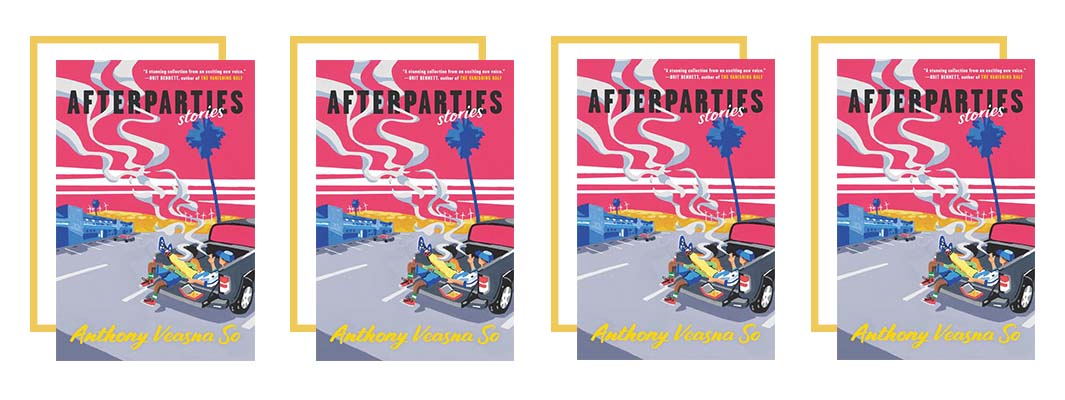
A wondrous debut short story collection about Cambodian Americans, queerness, the legacies of genocide, and … donuts. (I don’t mean to make light of it, but donuts appear in multiple stories to a powerful impact.) At its heart, Anthony Veasna So’s “Afterparties” contains stories of the lives of children of Cambodian immigrants who survived the Khmer Rouge genocide.
Tragically, Anthony passed away unexpectedly last December at just 28, an exceptionally promising talent taken from us way too soon. Alma Editor Molly Tolsky met Anthony at a writing workshop earlier in 2020 and remembers him as an effervescent presence, both kind and funny and brilliant in his perception of the world. We are lucky to get this glimpse of his talent and humanity in this book.
Read if you’re into: moving short stories, understanding legacies of genocide. Get it here.
19. The Other Black Girl by Zakiya Dalila Harris (June)
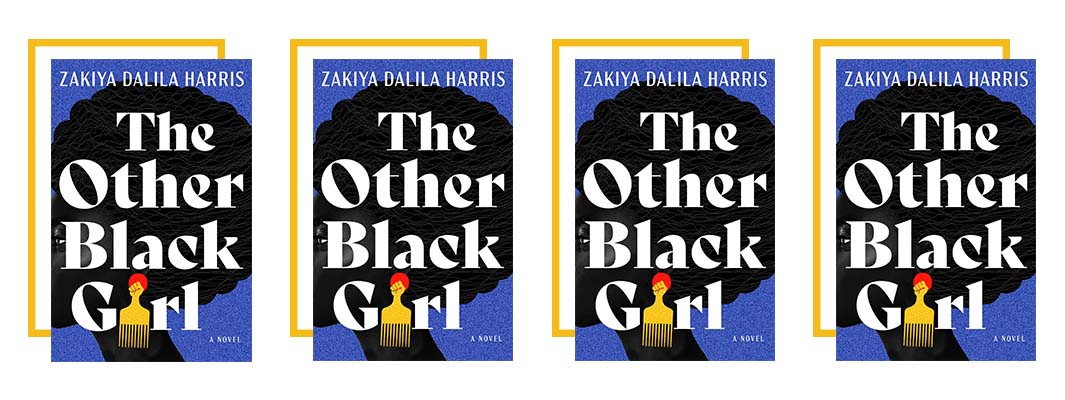
Nella is a 26-year-old editorial assistant at a famous book imprint — and the only Black employee. She’s exhausted by being alone and the constant microaggressions she has to deal with. Until, one day, Hazel arrives. Hazel is a Black woman who seems to get it. But … well, Nella starts receiving threatening notes to leave Wagner and Hazel betrays her in a weird public way. Zakiya Dalila Harris has crafted a master thriller of racism in the workplace that will leave your jaw on the floor at the end. Side note: This was advertised as “Get Out” meets “The Devil Wears Prada” and obviously that is very intriguing, but “The Other Black Girl” is fully its own thing and cannot be reduced to those two cultural moments. This will absolutely be the book everyone is talking about this summer.
Read if you’re into: thrillers! Commentaries on white workplaces! Black woman protagonists! Get it here.
20. Embassy Wife by Katie Crouch (July)
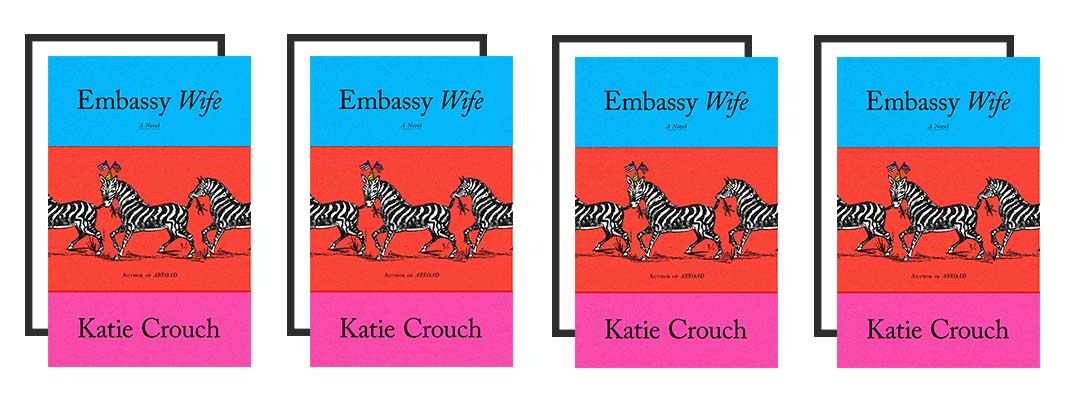
“Embassy Wife” is the story of three women in Namibia, two of whom are embassy wives. There’s Amanda Evans, who gives up her Silicon Valley job so her husband, Mark, could work on a Fulbright project, and Persephone Wilder, who has been a longtime embassy wife, aka a “trailing spouse,” following her husband from post to post. And then there’s Mila, the wife of a Namibian politician. Honestly, the book is best read as unspoiled as possible so know that there’s more to all these women, and that their stories intertwine in delightful, humorous and shocking ways. There’s also a deeply satisfying ending to the story. And, bonus for Alma readers here: Crouch is not Jewish, but her husband and her children are, and the Jewish character, Mark, feels authentic in his identity. It’s a page-turner filled with astute commentary on American expats, the legacy of colonialism, and white feminism.
Read if you’re into: page turners, satire, political drama. Get it here.
21. Ghost Forest by Pik-Shuen Fung (June)
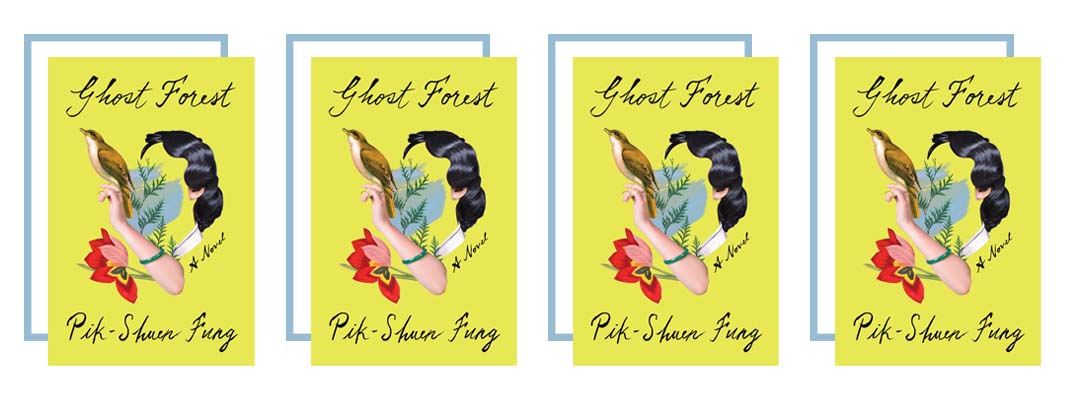
“Ghost Forest” is the kind of book you sit down to read and don’t realize you’ve read the entire thing until you’re on the last page. Pik-Shuen Fung writes lyrically and poetically of grief, immigration and Chinese identity. The story is of a daughter who moves with her family from Hong Kong to Vancouver before the 1997 Handover, when Hong Kong became part of China. The father stays behind, and she struggles to understand him, as she learns about her mother and grandmother’s histories. When her father falls ill, she doesn’t know how to cope — or how to grieve a man she will never fully understand. K-Ming Chang writes of “Ghost Forest,” “Like a Chinese ink painting, every line in Pik-Shuen Fung’s Ghost Forest is full of movement and spirit, revealing the resilient threads of matrilineal history and the inheritance of stories and silences. With humor, compassion, and clear-eyed prose, Fung reminds us that grief, memory, and history are never linear but always alive.”
Read if you’re into: stories of immigrants, grief, families. Get it here.
22. With Teeth by Kristen Arnett (June)
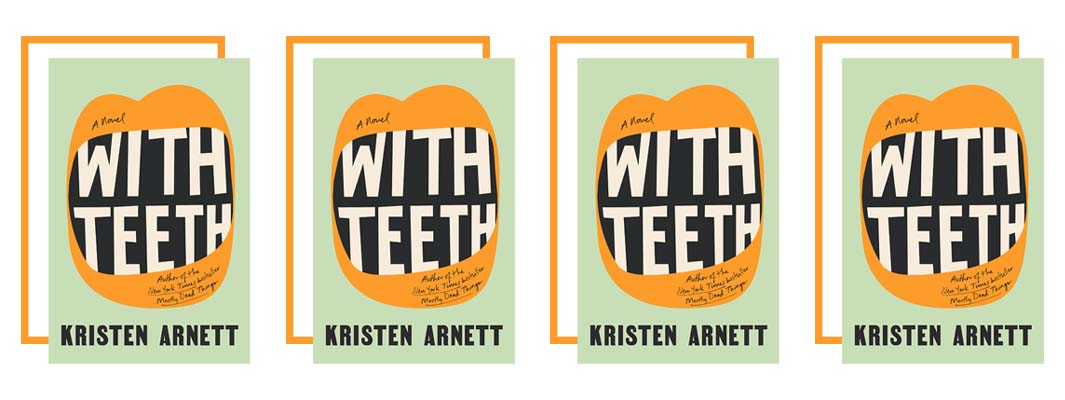
Sammie is struggling to raise her son, Samson, with little help from her wife, Monika. Samson is aggressive, angry and resists all love from her. Sammie is trying her best to present a great queer family — while Monika excuses all of Samson’s behavior. The book is advertised as “a surprising and moving story of two mothers, one difficult son, and the limitations of marriage, parenthood, and love,” and what struck me the most while reading was that question of the limitations of a parent’s love. What happens when a mother and son are just unable to bond? What comes next? Compelling, tense, and will leave you unsettled in the best way possible.
Read if you’re into: queer families, Florida, thinking about motherhood. Get it here.
23. Somebody’s Daughter by Ashley C. Ford (June)

Ashley Ford’s memoir is centered on her relationship with her father — a man who was incarcerated when she was young, and who remained in prison for most of her life. The reader doesn’t know what his crime was, as Ashley didn’t as a child, and this tension unfolds expertly throughout the story. Here’s from the description: “‘Somebody’s Daughter’ steps into the world of growing up a poor Black girl in Indiana with a family fragmented by incarceration, exploring how isolating and complex such a childhood can be. As Ashley battles her body and her environment, she embarks on a powerful journey to find the threads between who she is and what she was born into, and the complicated familial love that often binds them.” Kirkus calls it a book that is “sure to be one of the best memoirs of 2021,” and I am deeply inclined to agree.
Read if you’re into: powerful memoirs. Get it here.
24. One Last Stop by Casey McQuiston (June)
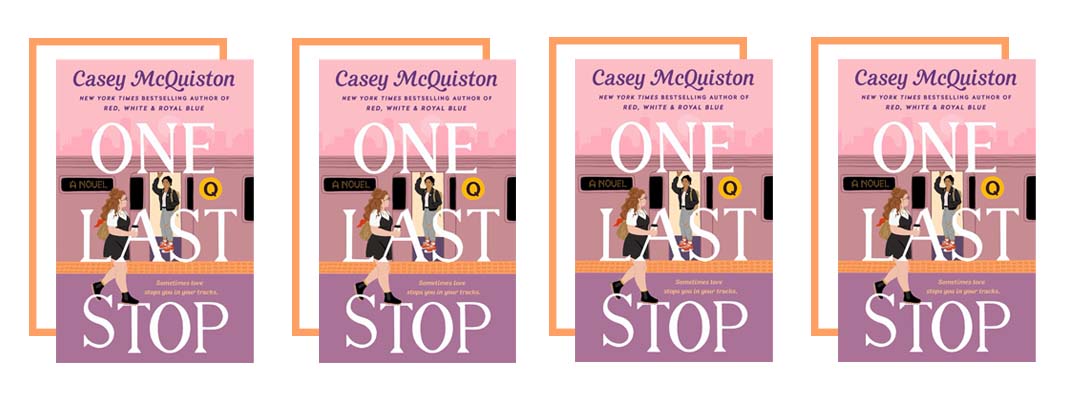
Like many others, I was fully obsessed with Casey McQuiston’s “Red White and Royal Blue,” the page-turner romance detailing a love between the son of the president and a British prince. So, I could not wait to read McQuiston’s latest, which is set a little closer to home for me: a love story in Brooklyn. It’s the tale of August, a 23-year-old who moves to NYC to try and finally finish school, and Jane, a mysterious girl she meets on the Q train. August, normally jaded and closed up, asks out Jane. Yet, they soon realize Jane is stuck on the subway, and has been (gasp!) since the 1970s. Suspend reality just a little for the lost-in-time plot, and what results is a heart-pounding read of the power of love — and pancakes, and drag queens, and New Yorkers!
Read if you’re into: love stories!! Queer romance! New York City, baby!! Get it here.
25. Intimacies by Katie Kitamura (July)
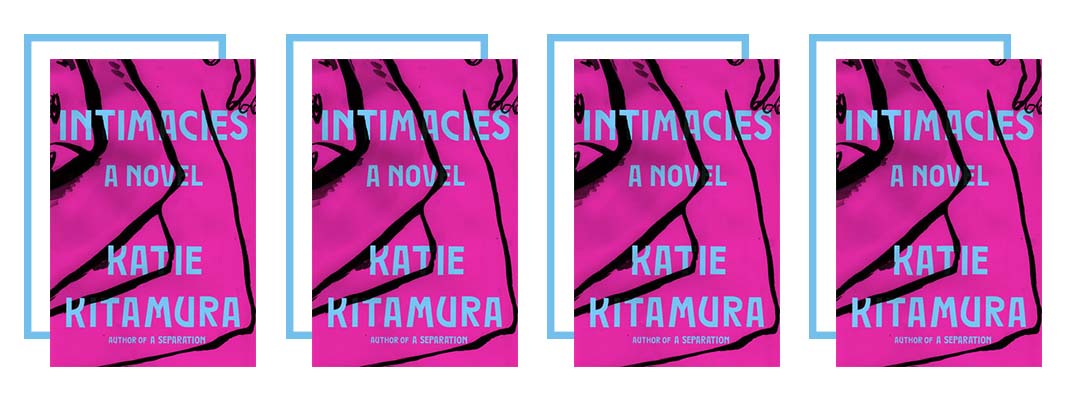
OMG, I simply don’t want to spoil any of this book for you because it is best just read — I read it in one sitting, literally — but I’ll try very briefly: “Intimacies” is the story of an interpreter who arrives at the Hague to work at the International Court. She’s been there for nearly a year and her contract is about to expire when she is asked to interpret for a former president accused of war crimes. In her personal life, she is dealing with a lover who hasn’t fully gotten over his ex-wife (technically they are still married), and a friend who is a witness to a violent crime. I had never really thought about the role of interpreter — the protagonist describes it as an attempt to make the “space between languages as small as possible” — and Kitamura’s skill is remarkable in capturing the role of a woman who is tasked with translating atrocity. An absolute must-read for the summer. (If you haven’t read her first novel, “A Separation,” what are you waiting for?!)
Read if you’re into: tensely plotted books, moral dilemmas, psychological dramas, minimalist prose. Get it here.
26. The Woman from Uruguay by Pedro Mairal (translated by Jennifer Croft) (July) 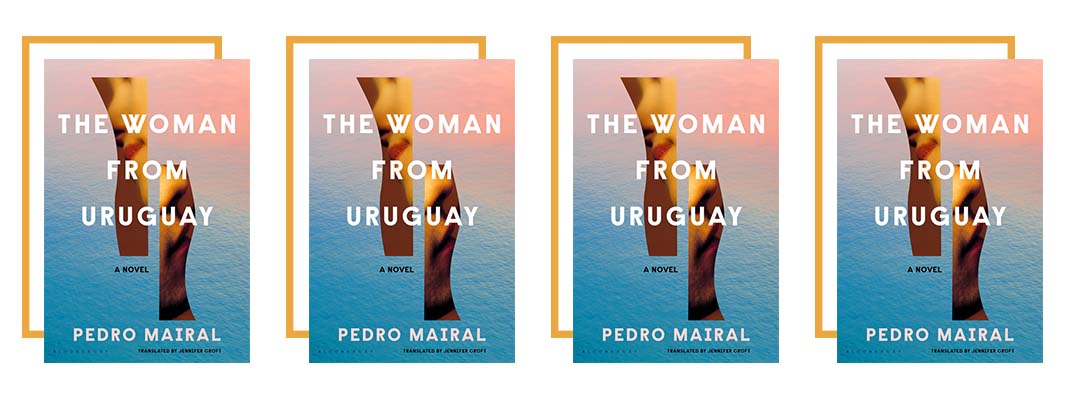
“The Woman from Uruguay” is a tale of 40-something unemployed writer, Lucas, who travels from Buenos Aires to Montevideo to withdraw cash from the bank because of exchange rates. There, he can’t stop thinking about Magal, a woman he met at a literary conference. He plans to meet up with her before he has to take the ferry back home — and the events that unfold over the course of the day change their lives forever. Mairal’s writing is simple yet cinematic in the description of what happens, and it is easy to get lost in his prose. A slim yet powerful novel.
Read if you’re into: stories that happen over the course of one day, relationships, literary fiction. Get it here.
27. Girl One by Sara Flannery Murphy (June)

Imagine a world where women didn’t need men to reproduce — if they could conceive without male DNA. That’s the basic plot of “Girl One,” where nine girls — our protagonist, Josephine is the titular Girl One — are conceived without men. The nine women and their daughters live in a place called the Homestead in Vermont until a mysterious fire burns down the property and kills the scientist and one of the daughters. Years later, the Girls and their Mothers are living across America when Josephine’s mom disappears, setting her off on a journey to find out what really happened all those years ago. Murphy, smartly, doesn’t dive too deeply into the science of it all, but focuses on the women at the heart of the story. A compelling read.
Read if you’re into: upernatural stories, feminist thrillers. Get it here.
28. Dear Senthuran: A Black Spirit Memoir by Akwaeke Emezi (June)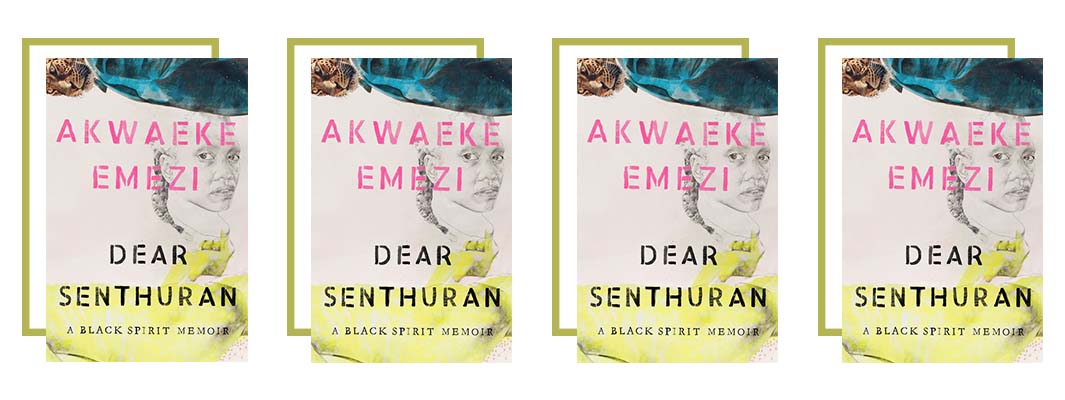
“The Death of Vivek Oji” was one of my favorite books I read last year, so I was eagerly looking forward to Emezi’s memoir, “Dear Senthuran.” Each chapter is dedicated to a different person and touches on a particular theme. It’s a memoir in letters, to various friends, lovers and family in Emezi’s life. “Their story weaves through transformative decisions about their gender and body, their precipitous path to success as a writer, and the turmoil of relationships on an emotional, romantic, and spiritual plane, culminating in a book that is as tender as it is brutal.” It’s like no memoir I’ve ever read before — in the best possible way.
Read if you’re into: memoirs, innovative storytelling. Get it here.
29. A Touch of Jen by Beth Morgan (July)
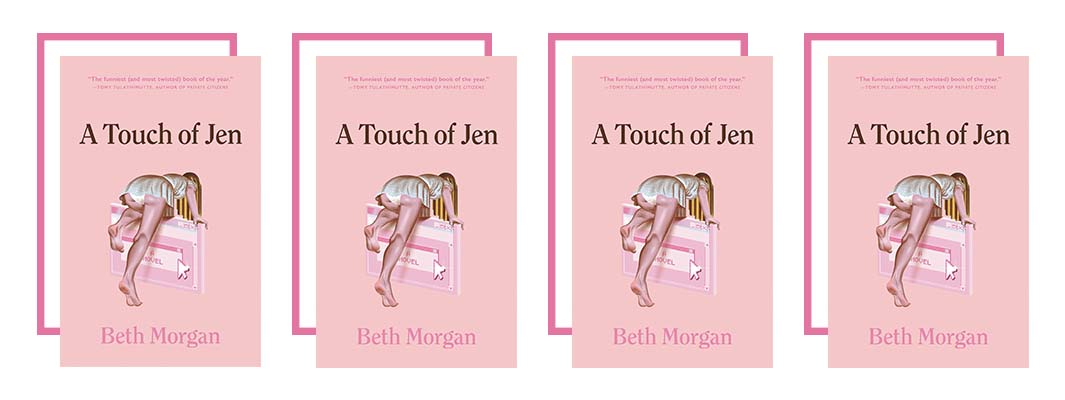
The weirdest book you may ever read about influencer culture is Beth Morgan’s “A Touch of Jen.” I’ve sat trying to write this blurb for the last five minutes, completely unsure how to sum up this book for you, because it’s simply bananas. Let me try: There’s Remy and Alicia, 30-somethings in dead-end service jobs, who are obsessed with Jen, a beautiful former co-worker of Remy’s who is a wannabe influencer. When they run into Jen and she invites them on a surfing trip with her boyfriend, they can’t say no, but the trip — and its aftermath — are not what they expect.
As the book jacket warns, “Prepare for sleepwalking attacks, stalking, murder, text messages from the afterlife, a visitor from another dimension, and more.” Once again: BANANAS. But like, in a good way.
Read if you’re into: a mash-up of horror, satire and drama?? Get it here.
30. The Day the Klan Came to Town by Bill Campbell and Bizhan Khodabandeh (August)
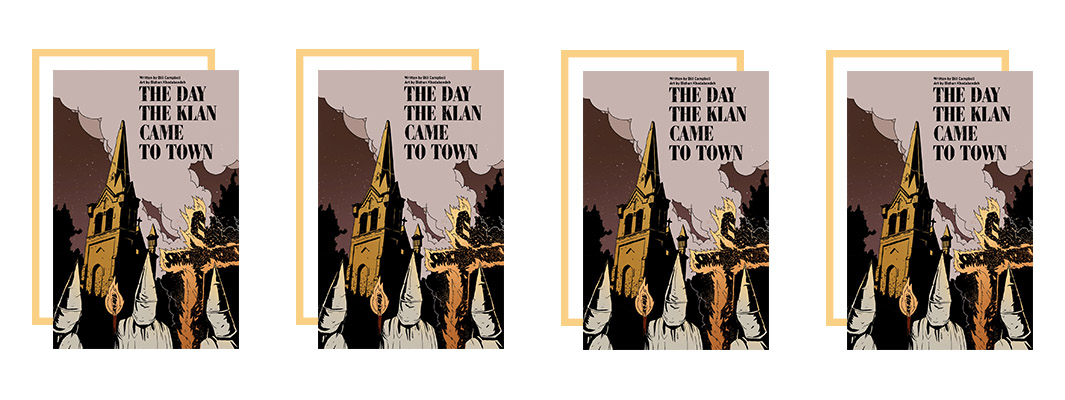
“The Day the Klan Came to Town” is a story of the Second Klan, the revival of the Ku Klux Klan after the 1915 film “Birth of the Nation.” Set in Carnegie, Pennsylvania, in 1923, it was a planned show of force to march through a town full of Catholics, mainly Italian immigrants, and Jews. This book is a fictionalized retelling of the very real riot, focusing on one young man, a Sicilian immigrant, Primo Salerno. Bill Campell, a Black sci-fi and Afrofuturism writer, expertly makes a pivot here to historical fiction, and the pairing with Iranian American artist Bizhan Khodabandeh makes the story really come to life. As Damian Duffy writes in his blurb: “So often, in times of unrest, we raise our heads up from the crowds of protesters and clouds of tear gas and wonder, ‘How did we get here?’ Fortunately, Bill Campbell and Bizhan Khodabandeh are here to remind you of the history that so informs our present.” A timely antifascist and antiracist story.
Read if you’re into: graphic novels, historical fiction. Get it here.
Disclosure: This post contains affiliate links, which means we may receive a commission if you click a link and purchase something that we have linked to. While clicking these links won’t cost you any extra money, they will help us keep this site up and running. Thanks!
